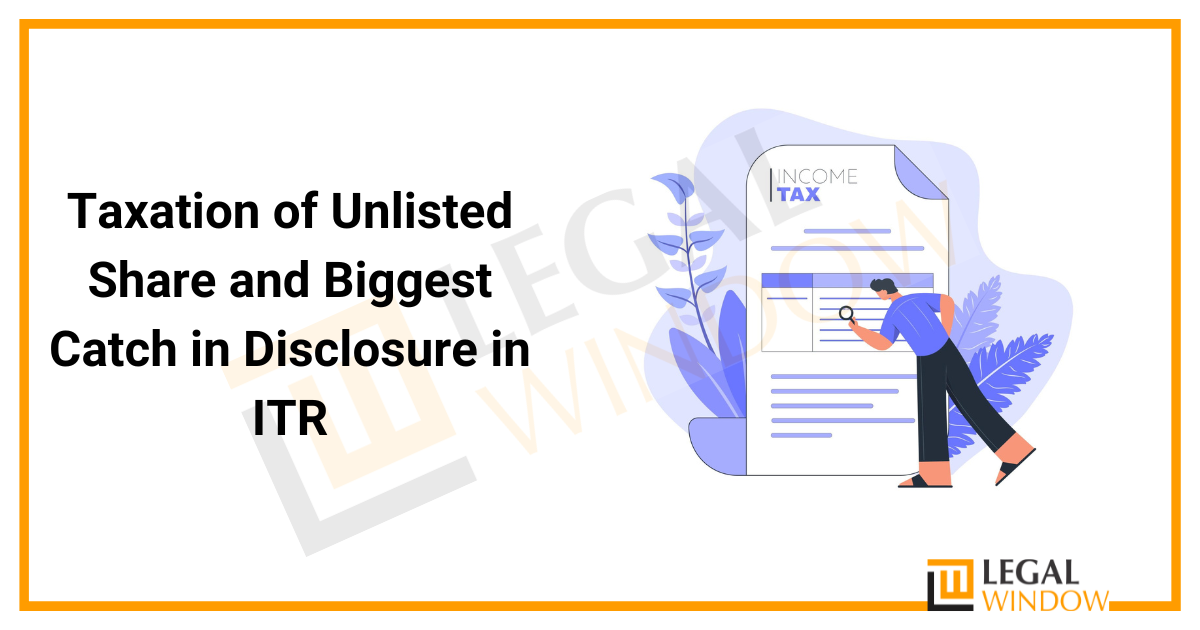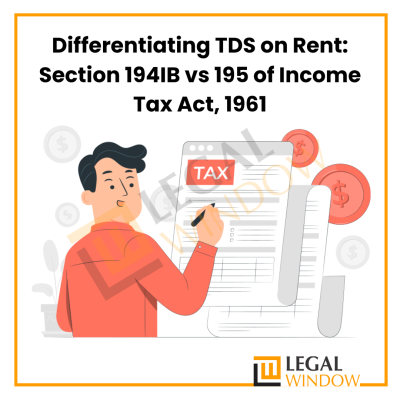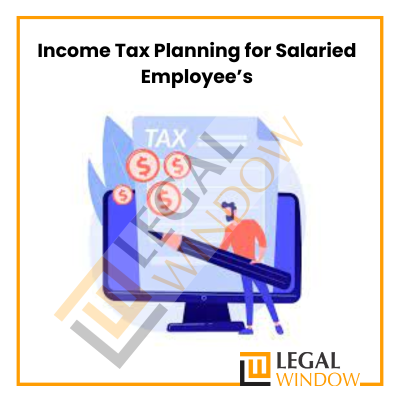Taxation of Unlisted Share and Biggest Catch in Disclosure in ITR
- October 5, 2022
- Income Tax
 Currently, there is a surge in equity transactions, investments, and so on. Indian investors have moved beyond conventional gold, silver, and real estate investments to shares, and mutual funds, and a few have been known to invest in public companies that are soon to be listed (Shares brought in the unlisted market). In this write-up, we will be discussing taxation on unlisted shares.
Currently, there is a surge in equity transactions, investments, and so on. Indian investors have moved beyond conventional gold, silver, and real estate investments to shares, and mutual funds, and a few have been known to invest in public companies that are soon to be listed (Shares brought in the unlisted market). In this write-up, we will be discussing taxation on unlisted shares.
But before we shall be looking into the taxation of unlisted shares, let us understand exactly what unlisted shares are.
Meaning of Unlisted Shares
An unlisted stock is one that is not listed on a recognized stock exchange. A trader or investor who buys and sells unlisted stocks must submit an ITR and pay income tax. According to the Income Tax Act, 1961, the sale of unlisted shares is a capital gains income. The income tax treatment of unlisted shares differs from that of listed shares.
These securities are sold on the over-the-counter (OTC) market. These are stocks of companies that are often in the pre-IPO stage and hence represent an appealing long-term investment potential for investors. Unlisted shares can be purchased through brokers or direct sellers.
Because these equities are not traded on a publicly listed stock market, no STT (Securities Transactions Tax) is imposed on them. These shares have a different tax impact than regular shares listed on a recognized stock exchange where STT is paid.
Applicability of Capital Gain on Sale of Unlisted Shares
The capital gain tax would be applicable depending on whether the unlisted stocks are long-term or short-term. If the unlisted equities are held for less than 24 months, or two years, the profits are taxed as short-term capital gains. Short-term capital gains are taxed at the investor’s marginal tax rate.
Long-term gains can also be realized if unlisted equities are kept for longer than 24 months before being sold. Long-term capital gains tax is levied at 20% with indexation. Indexation is the advantage of increasing the cost of an asset to stimulate inflation.
For listed stocks, however, a 12-month holding term is considered. Listed securities held for more than a year are exempt up to Rs.1 lakh, while long-term gains in excess of Rs.1 lakh are taxed at 10%. Furthermore, no indexation advantage is available on long-term profits on listed equities. Short-term capital gains on listed securities are taxed at a fixed rate of 15%.
Unlisted stock is not traded on any publicly traded stock exchange. As a result, the Company does not have to pay STT, or Securities Transaction Tax, on such shares. The holding period is 24 months:
- Long-Term Capital Gain (LTCG): When an investor sells an unlisted stock that he or she has held for more than 24 months, the gain or loss on the sale is referred to as a Capital Gain or Capital Loss.
- Short Term Capital Gain (STCG) or Short Term Capital Loss (STCL): If an investor sells an unlisted stock held for up to 24 months, the gain or loss on the sale is a Short Term Capital Gain (STCG) or Short Term Capital Loss (STCL) (STCL).
Calculation of Capital Gain in case of Unlisted Shares
Comparing unlisted shares to listed shares, a separate method is used to determine capital gains. For listed securities, the purchase and sell prices are easily accessible since they are exchanged on the stock exchange. In contrast, the fair market value of unlisted shares must be established. The bigger of these two figures is regarded as the “sale consideration for these shares” when the fair market value and the actual selling price are compared.
The capital gains are calculated by deducting the cost of transfer and acquisition from this value. Remember that the indexed acquisition cost should be calculated rather than the actual acquisition cost if the transferred shares have been held for longer than 24 months.
Applicable Income Tax on Unlisted Shares
The Income Tax Act, 1961 requires unlisted shares to declare their opening balance on the first day of the fiscal year, the number of shares purchased/sold throughout the year, and their closing balance on the last day of the fiscal year in Part A- General of the income tax return.
The tax treatment of trading in unlisted shares is comparable to that of other capital assets. The income tax rates on the sale of unlisted shares of a domestic or foreign company are as follows:
- LTCG with Indexation: 20%
- STCG is taxed using a Slab System
Even investing in and holding an unlisted share disqualifies an assessee from submitting an ITR-1, since capital gains or losses cannot be stated in ITR-1 Form. Therefore, if the assessee has no income from a company or profession, the investor holding an unlisted share must file ITR-2; otherwise, ITR-3 must be filed.
Method of carrying Forward Loss on Sale of Unlisted Shares
Set-off and Carry Forward provisions for unlisted shares are comparable to other capital gains and losses. These shares cannot be adjusted against any other kinds of income, including a salary, a house or other property, company revenue, or any other forms of income, if they are sold at a loss.
Only capital gains may be set off against these losses. Only long-term capital gains may be used to set off a long-term capital loss from the sale of unlisted shares. Long-term and short-term benefits might be set off by a short-term capital loss. The unabsorbed loss may be carried over for an additional eight years in a row. However, capital gains income from the pertinent years may be used to set off the carried forward loss.
The investor has the option to set off both STCG and LTCG with short-term capital losses. They can start off solely against STCG and LTCG and carry the remaining loss forward for an additional 8 years. Only LTCG can be set off by long-term capital losses by the investor. They can set off solely against LTCG and carry the leftover loss forward for an additional 8 years.
Important Points to keep in mind with regards to Taxation of Unlisted Share
Investors should keep in mind the following points with regards to Taxation of Unlisted Share:
- An investor must report any gains or losses from unlisted shares in their income tax return. Both ITR-1 and ITR-4 cannot be utilized to declare capital gains income. Only ITR-2 and ITR-3 may be filed in this situation. ITR-3 must be filed if a person has business income and profits from unlisted shares.
- Unlike other listed securities, unlisted shares must be declared in ITR even if they are kept and not sold throughout the fiscal year. This is vital to keep in mind.
 Endnote
Endnote
Although it might be profitable, investing in unlisted shares is hazardous. It is profitable because an investor might be able to purchase business shares at a discount before the company launches an Initial Public Offering (IPO) to solicit investments from the general public and list the shares on a stock market after the IPO. It is dangerous because it is challenging to get information about an unlisted firm and determine the genuine worth of its shares in comparison to a listed company, whose facts are easily accessible on the public record. Any false information might result in the investment’s loss.
However, due to limited exposure to the capital market, shares of unlisted companies have fewer market risks than shares of public companies, although having a larger default risk.
CA Pulkit Goyal, is a fellow member of the Institute of Chartered Accountants of India (ICAI) having 10 years of experience in the profession of Chartered Accountancy and thorough understanding of the corporate as well as non-corporate entities taxation system. His core area of practice is foreign company taxation which has given him an edge in analytical thinking & executing assignments with a unique perspective. He has worked as a consultant with professionally managed corporates. He has experience of writing in different areas and keep at pace with the latest changes and analyze the different implications of various provisions of the act.
Categories
- Agreement Drafting (23)
- Annual Compliance (11)
- Change in Business (36)
- Company Law (148)
- Compliance (90)
- Digital Banking (3)
- Drug License (3)
- FEMA (17)
- Finance Company (42)
- Foreign Taxation (6)
- FSSAI License/Registration (14)
- GST (120)
- Hallmark Registration (1)
- Income Tax (202)
- Latest News (34)
- Miscellaneous (165)
- NBFC Registration (8)
- NGO (14)
- SEBI Registration (6)
- Section 8 Company (7)
- Start and manage a business (21)
- Startup/ Registration (130)
- Trademark Registration/IPR (40)
Recent Posts
About us
LegalWindow.in is a professional technology driven platform of multidisciplined experts like CA/CS/Lawyers spanning with an aim to provide concrete solution to individuals, start-ups and other business organisation by maximising their growth at an affordable cost.








